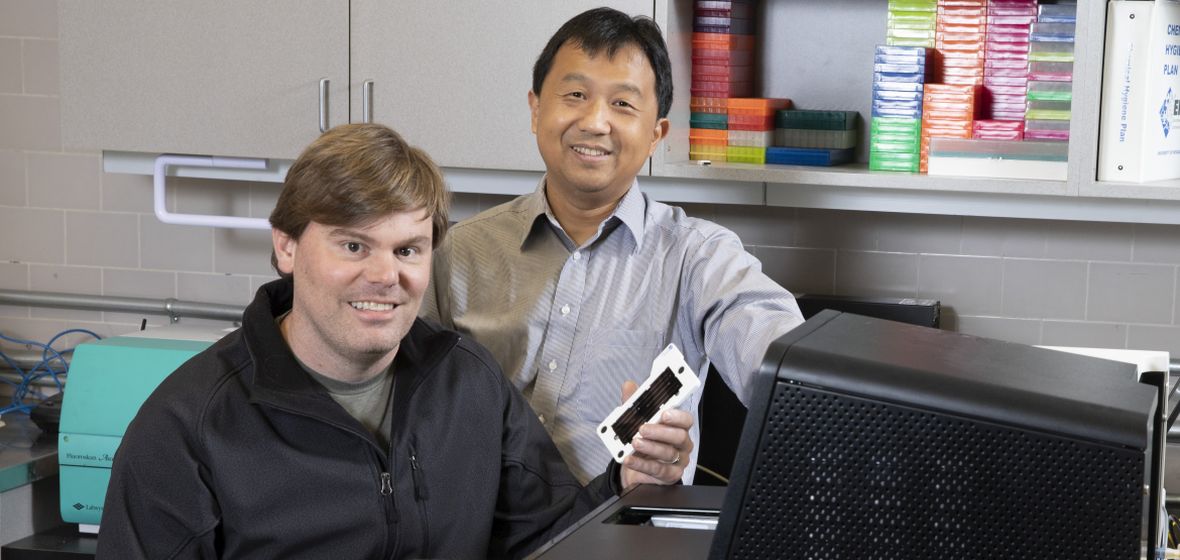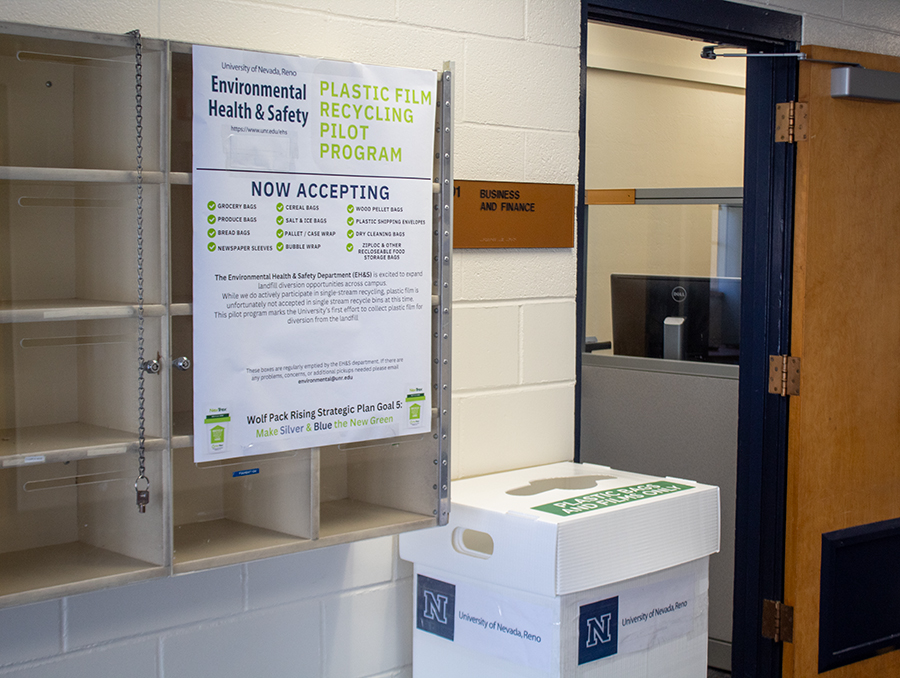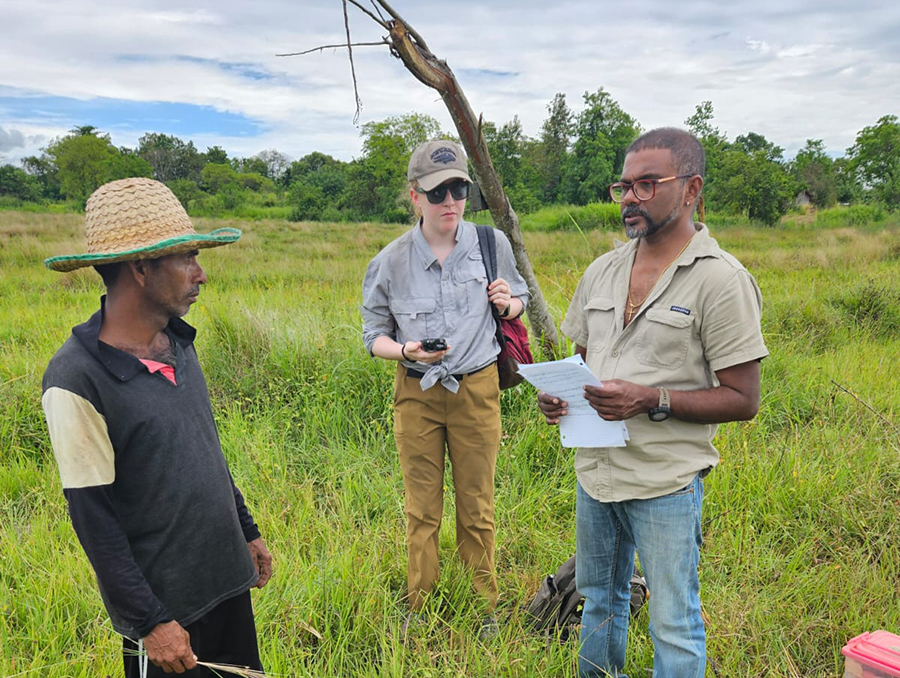Enhancing the number of and access to shared facilities, laboratories and equipment has been a priority at the University of Nevada, Reno. Several Core Labs are part of the wide array of state-of-the-art Shared Research Facilities now in place and supporting research, creative, scholarly and entrepreneurial activity. Further marking the commitment, new directors have been named to two of these Core Labs, the Nevada Genomics Center and the Nevada Center for Bioinformatics.
“The Core Labs have instrumentation that no one faculty member can afford to purchase, upgrade and maintain. They are needed by a large number of faculty members,” explained Ana de Bettencourt-Dias, associate vice president for research. “By centralizing these services, we are able to make the instrumentation and the knowledge widely available.”
New Directors Appointed
Paul Hartley has been named director of the Nevada Genomics Center and Yanji Xu has been named director of the Nevada Center for Bioinformatics. Both started in their roles Jan. 2, 2019. Both Hartley and Xu’s careers include experience in industry and academic settings.
Hartley is a molecular biologist with expertise in genomics, computational biology and technologies such as next-generation sequencing that produce large datasets. Hartley most recently was a principal scientist directing a team developing a sample preparation workflow with Roche Sequencing Solutions in San Jose, California. Prior to this, he joined Dovetail Genomics as one of its first employees and contributed towards the development of technology for genome assembly. Hartley earned his bachelor’s degree in biology from Emory University in Atlanta and his Ph.D in biochemistry and molecular biology from the University of California, San Francisco where he was also a postdoctoral fellow. One of his research interests is the development of molecular biology tools and processes that allow biological questions to be investigated with next-generation sequencing technologies.
Xu most recently was molecular strategy director with the Moffitt Cancer Center in Florida. He has held previous positions with the Food and Drug Administration and St. Jude Children’s Research Hospital. He earned his bachelor’s degree from Lanzhou University in China, master’s in molecular biology from Chinese Academy of Agricultural Science in China, master’s in computer science from New York University, and master’s and Ph.D. in biomedical sciences from Albert Einstein College of Medicine in New York. Xu’s primary research interests include, but not limited to, proteomic bioinformatics, big data in precision medicine and integrative analysis of multi–omics data.
Centers of Expertise
The University’s Core Labs include:
- Nevada Genomics Center with technologies for the analysis of DNA and RNA to produce data on genomes and transcriptomes. Previously organized through the College of Agriculture, Biotechnology and Natural Resources, the Nevada Genomics Center is now organized through Research & Innovation as a means to further support the wide availability of this service. The center provides services for more than 380 regional, national and international labs.
- Mick Hitchcock, Ph.D. Nevada Proteomics Center supporting the study of proteins and their composition and structure. The Nevada Proteomics Center offers high quality mass spectral and electrophoretic proteomic analysis, and offers training and workshops. David Quilici is director of the Center for Proteomics.
- In Vivo Imaging Coreproviding real-time imaging of laboratory rodents utilizing a broad base of technologies with adjacent animal housing and procedural space. Ben Weigler, campus attending-veterinarian and director of Animal Resources, part of Research & Innovation, directs the In Vivo Imaging Core.
- Nevada Center for Bioinformatics supporting multi-omics data analysis projects, including next generation genomics and transcriptomic sequencing, mass spectrometry proteomics analysis, statistical and integrative analysis, downstream function, pathway and network analysis method development for the cutting edge technologies as well as bioinformatics training.
An Advanced Imaging Center is being developed as an additional Core Lab and will encompass the expanding facilities and equipment on campus for imaging technologies, such as functional MRI, scanning and transmission electron microscopes, and two-photon and spinning disc confocal microscopes.
High Performance Computing
Because of the data-intensive nature of much of the work conducted through the Core Labs, another shared resource is generating synergy. Development of the University’s High Performance Computing cluster, known as Pronghorn, is supported by Switch, a global leader in the design and operation of advanced data centers; Server Technology; the Knowledge Fund facilitated by the Governor's Office for Economic Development; a donation from long-time University supporter and groundbreaking researcher Mick Hitchcock; and faculty members investing in the cluster through their research programs.
Named for the American antelope and fastest mammal on the North American continent, Pronghorn was successfully launched in December 2017, little more than a year ago, and has already been expanded to meet demand. It offers 45 times more computing power than the University's prior system and puts the University's computing infrastructure among those in place at many of the nation's leading research institutions.
Enhancing Access
While the top priority is supporting research and study at the University of Nevada, Reno, the Core Labs are available to support research at other academic institutions and private industry. The Nevada Center for Applied Research facilitates this external work and corresponding fee-for-service agreements or contracts for the Core Labs as well as for the many other facilities and labs participating in the University’s Shared Research Facilities.
Development of the Core Labs is supported through the Nevada INBRE, the IDeA Network of Biomedical Research Excellence program for the institutions of the Nevada System of Higher Education. This National Institutes of Health program helps traditionally underfunded states build research infrastructure and improve education and career pipelines for students. The Core Labs are further supported by Research & Innovation, the College of Science, the College of Agriculture, Biotechnology and Natural Resources and UNR School of Medicine.















